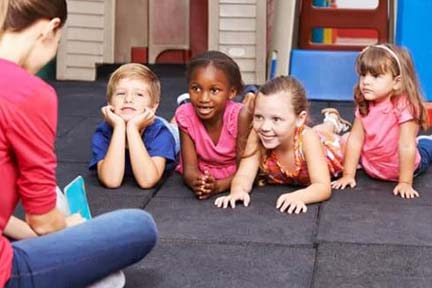
Enroll Four-Year-Old Kids in Free Preschool Program

FOR IMMEDIATE RELEASE August 12, 2022 Contact: [email protected]
Gov. Whitmer Reminds Parents There is Still Time to Enroll Four-Year-Old Kids in Free Preschool Program
LANSING, Mich. — Governor Gretchen Whitmer and the Michigan Department of Education are encouraging parents of four-year-old children across Michigan to contact their local school districts or visit GreatStarttoQuality.org to explore about getting their children enrolled in a Great Start Readiness Program (GSRP)—Michigan’s nationally recognized, state-funded preschool for four-year-olds.
“Every kid deserves a great start to get on track for long-term success, and that starts with preschool,” said Governor Whitmer. “Access to high-quality preschool makes a huge difference for kids, increasing their kindergarten readiness, putting them on track for 3rd grade reading proficiency, and boosting eventual high school graduation rates. Since I took office, I am proud to have made bold, bipartisan investments in the Great Start Readiness Program, Michigan’s free preschool program for four-year-olds, expanding it to serve 22,000 more kids by eliminating waiting lists. Getting this done will help kids in every region of our state, and I encourage parents to sign up for free preschool by visiting greatstarttoquality.org.”
In 2021, Governor Whitmer announced a bold plan to expand GSRP to ensure more Michigan children could get a great start to a quality education. Last summer, she signed into law the largest expansion of GSRP in the state’s history—allowing Michigan to eliminate waiting lists and serve 22,000 more four-year-olds. This year, the governor continued to work with the legislature to take the next step in expansion and help recruit enough teachers and classrooms to serve all eligible children.
The expansion of GSRP increases the opportunity for more families to enroll their children in programs that will better prepare the youngsters for kindergarten. Children that attend GSRP are more likely to enter school ready to learn, read by third grade, and graduate from high school on time.
“Preschool helps develop children academically, physically, and socially,” said State Superintendent Dr. Michael Rice. “A high-quality early education program like GSRP helps children prepare for kindergarten and success later in school and in adulthood. I strongly encourage local and intermediate school leaders to work with their communities to expand GRSP pre-school to the maximum extent possible. An additional year of education at four years old is a research-based way to improve literacy, numeracy, and a wide range of outcomes for students.”
“We are excited that there was a bipartisan budget to support GSRP expansion across the state,” said Rebecca Josephson-Gorinac, Director of Early Childhood Services, St. Clair County RESA. “The increase in funding provides access to more resources to help reach families, support staffing of classrooms, and teacher compensation. We are seeing an increase in parent interest in preschool. Parents value preschool. We’re looking to expand and add three new programs in our community this year based on the number of applications we received.”
The GSRP program meets all 10 quality benchmarks recommended by the National Institute for Early Education Research (NIEER)—quality benchmarks such as having teacher credentials; low staff-child ratios; smaller class sizes; and a research-based curriculum.
Parents can apply for GSRP’s 2022-2023 program year now! Parents can search for local GSRP programs through Michigan’s Great Start to Quality website or apply directly through their local intermediate school district here.
GSRP eligibility is primarily determined based on family household income (a family of four earning up to $69,375 a year is eligible). However, other factors such as a diagnosed disability, parent education, and primary home language other than English may also be considered. The program is offered as part-day and full-day with child care before and after school available in many areas. Some programs also offer transportation to families.
“We want all families to have experiences in the highest quality programs available,” said Cari O’Connor, Director of Early Childhood and Parent Programming, Montcalm Area Intermediate School District. “Through GSRP, we offer a high-quality experience and work to support healthy children in a whole child way. It’s more than a program; it creates a community that wraps around the child and the family.”
MDE worked with the advertising agency The Yaffe Group and DPTV to produce 30-second and 15-second public service announcement (PSA) videos to heighten awareness for the program. The videos are airing on Detroit PBS KIDS channel and The Michigan Learning Channel statewide.
|



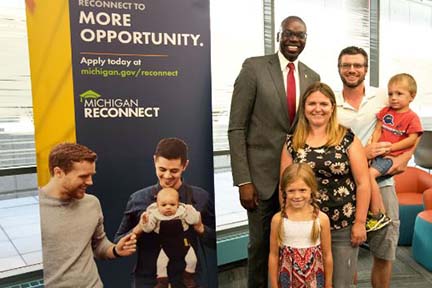





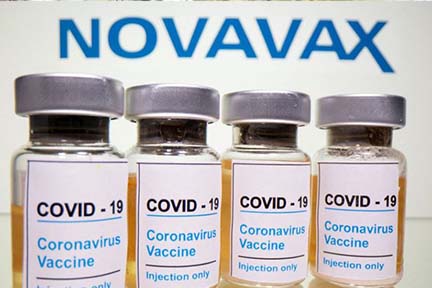

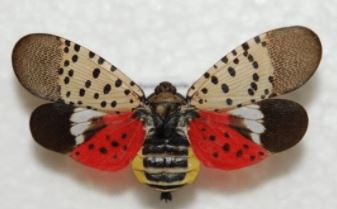

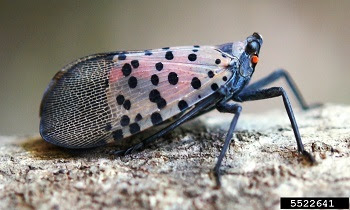 “Although not unexpected, this is certainly tough news to share due to its potential to for it to negatively impact Michigan’s grape industry,” said McDowell. “Spotted lanternfly has been moving closer to the state over the last few years. MDARD, along with our state, local and federal partners, has been working tirelessly to inform and educate growers and the public about this highly invasive insect.”
“Although not unexpected, this is certainly tough news to share due to its potential to for it to negatively impact Michigan’s grape industry,” said McDowell. “Spotted lanternfly has been moving closer to the state over the last few years. MDARD, along with our state, local and federal partners, has been working tirelessly to inform and educate growers and the public about this highly invasive insect.”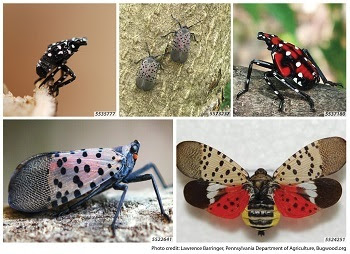 “MDARD and MDNR are working with the United States Department of Agriculture to define the extent of the infestation,” said Mike Philip, MDARD’s Pesticide and Plant Pest Management Division Director. “Although we can’t pinpoint exactly how it got here, it likely hitchhiked on nursery stock brought in from an infested state and has possibly been here for several months. We are in the assessment stage of response, but it is important to note that typical pest management techniques have not proven effective for eliminating the pest in other states.”
“MDARD and MDNR are working with the United States Department of Agriculture to define the extent of the infestation,” said Mike Philip, MDARD’s Pesticide and Plant Pest Management Division Director. “Although we can’t pinpoint exactly how it got here, it likely hitchhiked on nursery stock brought in from an infested state and has possibly been here for several months. We are in the assessment stage of response, but it is important to note that typical pest management techniques have not proven effective for eliminating the pest in other states.”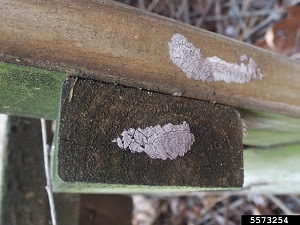 Spotted lanternfly moves easily on firewood, tires, campers, vehicles and more. Prevention and early detection are vital to limiting the spread of spotted lanternfly. If you find a spotted lanternfly egg mass, nymph or adult, take one or more photos, make note of the date, time and location of the sighting, and report it online to Eyes in the Field. Photos are necessary to verify a report and to aid in identification.
Spotted lanternfly moves easily on firewood, tires, campers, vehicles and more. Prevention and early detection are vital to limiting the spread of spotted lanternfly. If you find a spotted lanternfly egg mass, nymph or adult, take one or more photos, make note of the date, time and location of the sighting, and report it online to Eyes in the Field. Photos are necessary to verify a report and to aid in identification.

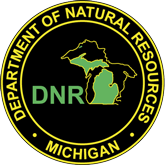

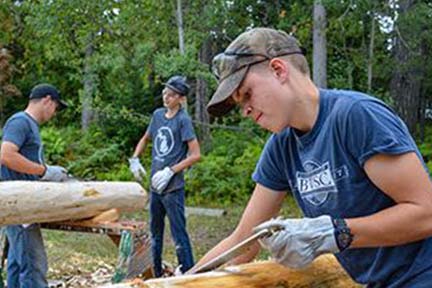


 Several state parks in southern Michigan will host volunteer stewardship workdays in August. Volunteers are needed to help with removing invasive plants that threaten high-quality ecosystems.
Several state parks in southern Michigan will host volunteer stewardship workdays in August. Volunteers are needed to help with removing invasive plants that threaten high-quality ecosystems.
 It’s time to talk about your state forests.
It’s time to talk about your state forests.
 Staff recommendations on whether to keep, exchange or sell land in the fifth set of 10 counties in the DNR’s state land review process are nearing DNR director approval, but there’s still plenty of time to review and share feedback via the
Staff recommendations on whether to keep, exchange or sell land in the fifth set of 10 counties in the DNR’s state land review process are nearing DNR director approval, but there’s still plenty of time to review and share feedback via the  Help improve wildlife habitat and hunting access at state game and wildlife areas with
Help improve wildlife habitat and hunting access at state game and wildlife areas with